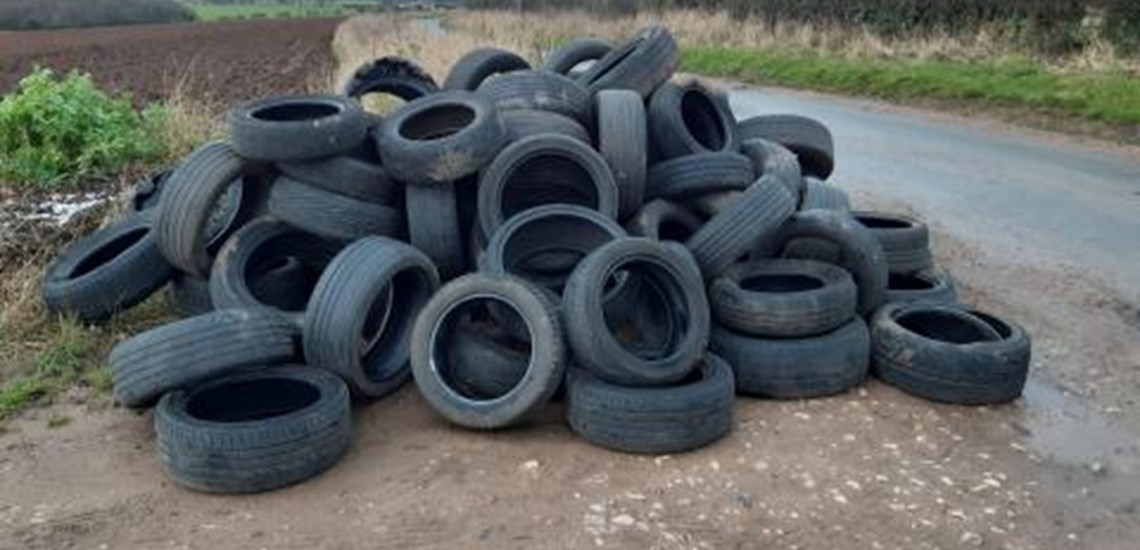According to Kwik Fit, government figures show an increase in tyre fly-tipping across England and Wales.
UK Fly Tipping Continues
Roger Griggs, communications director at Kwik-Fit, said: “There is absolutely no excuse for a tyre to be fly tipped. Tyre dealers must ensure that used tyres are dealt with by a registered waste company and those companies have a duty to process them responsibly. Although they need to be covered by a ‘waste’ licence, used tyres still have value as a raw material and therefore it makes even less sense for them to be fly tipped.”
This is an ongoing issue in the UK, and interestingly, also in Germany, the two large free markets for end-of-life tyres. Whilst some dumping does still appear in the countries with extended producer responsibility, such as France, Italy, or Spain– it is infrequent in those markets.
In the UK, if a tyre fitter removes a tyre from a vehicle at his place of work, or not at a private address, that tyre automatically becomes waste. In theory, the only tyres that could arise outside the trade are those swapped in a client’s driveway, where the client doesn’t want to pay a recycling fee. However, it is not always easy for the public to dispose of tyres, not all councils have tyre bins at their amenity tips. So, small dumps might well be attributed to private individuals.
Larger dumps may come from retailers who, for whatever reason have not charges a recycling fee, or having charged it wish to dispose of the tyres at no cost to themselves. A transit load of tyres might easily be dumped from a single retailer acting alone.
Or retailers will often accept the lowest fee possible to dispose of tyres. This way tyres can end up with the fly-by-night operator, who collects and dumps – this only works if there is no paperwork – and who is checking anyway?
The solution is simple, but the UK tyre trade has fought against it for many years. Take the profit centre out of waste tyres at the point of arising. Take away the profit the retailer can make from recycling fees, centralise the fee collection through tax, environmental levy, on every tyre sold. The agency then pays agreed fees to legitimate collectors and recyclers. Anyone collecting outside the system has no profit at any point in the chain. There is no point in collecting outside the approved chain. Fly tipping of tyres is then minimised.




















